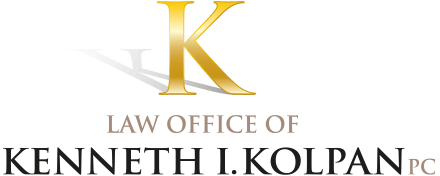Neuropsychologists Beware
Kenneth I. Kolpan, JD (Editor)
NEUROPSYCHOLOGISTS have become key experts in litigating head injury cases. Their test results often provide the only objective data in cases of minor or moderate head injury. It is well known that such injuries persist despite normal electroencephalograms (EEGs), x-rays, computed tomography (CT) scans, and other diagnostic tests. Though many clinicians understand this phenomenon, juries look for factual evidence that a head injury exists. Neuropsychologists have become the key experts in many personal injury claims. Defense counsel, cognizant of this crucial testimony, may vigorously examine neuropsychologists.
Cross-examination of a neuropsychologist starts with subpoena of all the raw test data. The attorney may go over each and every question of every test, as well as each of the patient's responses. The neuropsychologist will be asked to point out each 'error' that was made. When this is done at a deposition (in the neuropsychologist's office), it seems harmless. At trial, however, the attorney will isolate the areas of inquiry to show the jury that the "missing" answer on one or two tests made all the difference in determining that the plaintiff is brain injured. Defense counsel will emphasize that the patient's answer is extremely close to normal so that the significance of the patient's response is diminished. Counsel will build on a number of insignificant responses to demonstrate that the basis for the neuropsychologic report is founded on subjective assessments of the examiner rather than on objective criteria.
At trial, the deposition transcript will b excerpted and the neuropsychologist will be asked about certain isolated areas of testing. Individual tests will be shown to the jury, and the neuropsychologist will be asked to explain the normal response and the plaintiff's response. The jury, for the first time, will see the actual test. By taking each and every response of certain isolated tests and demonstrating it before the jury, the attorney puts each juror through the neuropsychologic examination. Defense counsel hopes that jurors will mark themselves on the test and conclude that it is "easy" to get a wrong answer. If jurors feel that they would have given the same answer as the plaintiff and found to be brain injured, the jurors are less likely to find that the plaintiff is brain injured. By undermining the basis of the examiner's opinion and minimizing the credibility of the tests, the cross-examination implies that there is no objective basis for a brain injury.
Cross-examination of neuropsychologists attempts to demystify neuropsychology. It is a field that is unfamiliar outside of the health care industry, which may give it legitimacy in the eyes of the public. If the mystique of the field is minimized, jurors may perceive the field as less scientific than, perhaps, neurology. A jury is then asked to consider that objective tests, such as skull films, CT, magnetic resonance imaging (MRI), and EEG reports are all normal as compared to neuropsychologic tests. Jurors may rely more heavily on the objective neurologic tests, which are normal, in making their decision.
Neuropsychologic reports often go beyond the test scores to include a comparison of the person's premorbid capabilities with current condition as well as a prognosis for the future. Cross-examination attacks the basis on which the neuropsychologist finds that the person's current level of functioning is below the premorbid levels or below the level that one would expect. It is embarrassing, if not fatal, when a neuropsychologist gives an opinion regarding functional loss but has failed to include an important preaccident record. Neuropsychologists are criticized for not reading closely all premorbid records, including employee evaluations, academic records, health records, military records, psychiatric reports, and aptitude tests.
Neuropsychologists in the courtroom should be aware that their credentials will be closely scrutinized. In a recent case in Massachusetts, an otherwise well-qualified expert was made to look unqualified when he had to answer that he was not a neurologist, neurosurgeon, physician, or psychologist. He had obtained his doctorate degree from a school of social work. The jury put little faith in his testimony.
The method of neuropsychologic testing is also subject to cross-examination. Most neuropsychologists agree that part of their assessment includes observations of the patient during interview and testing. It is not only the response, but also how it is given, that is being observed. A neuropsychologist who utilizes technicians to perform tests will find it difficult to justify interpreting test results taken by another person, without having directly observed the patient. How can a neuropsychologic expert justify his or her opinions regarding a patient's disability and prognosis without having seen the patient?
Neuropsychology provides a significant benefit to patients with head injury. Neuropsychologists are increasingly being asked to participate in litigation because head injury litigation is not clear-cut; it requires the involvement of experts in the field who can explain and educate juries about the subtleties of head injury. The expert must be prepared for the vigorous cross-examination, however, or the expert opinion will be just that—an opinion.
 Boston Brain Injury Lawyer Kenneth I. Kolpan Home
Boston Brain Injury Lawyer Kenneth I. Kolpan Home







